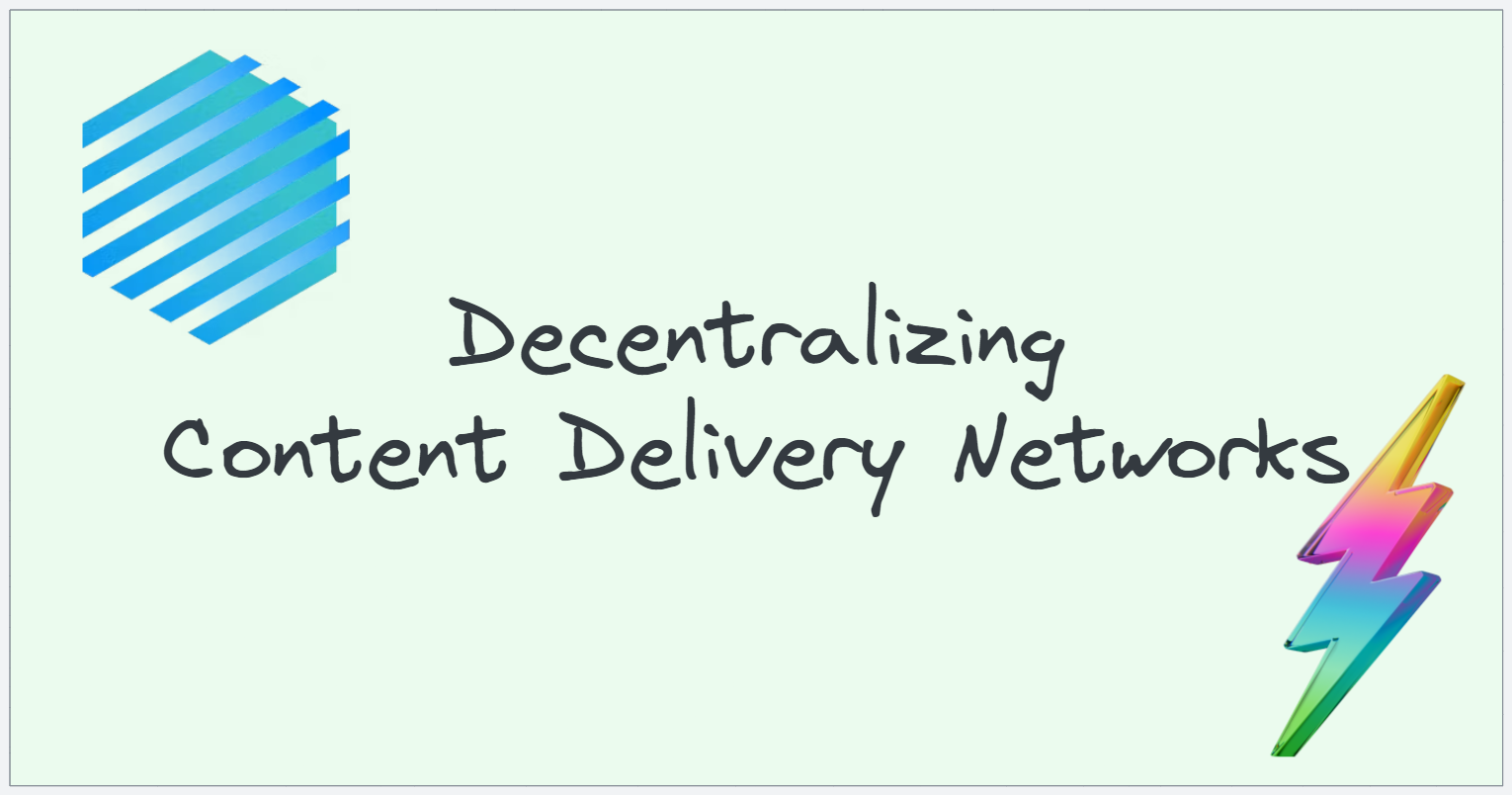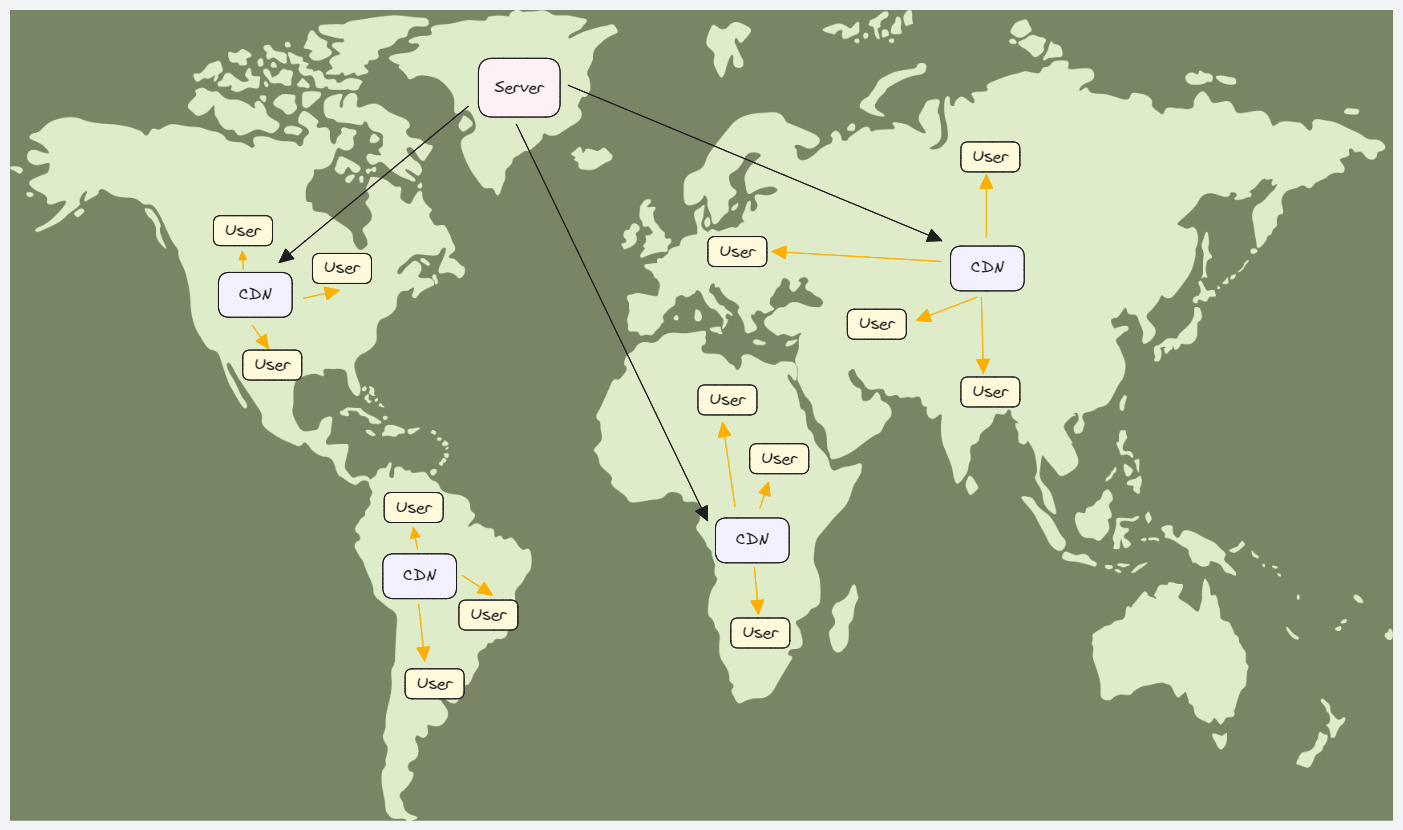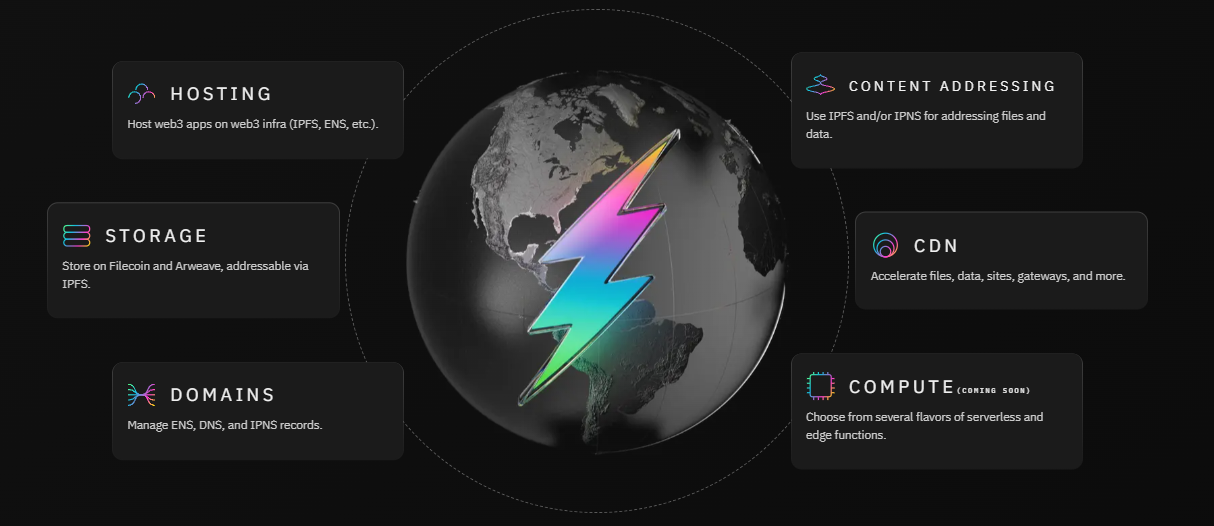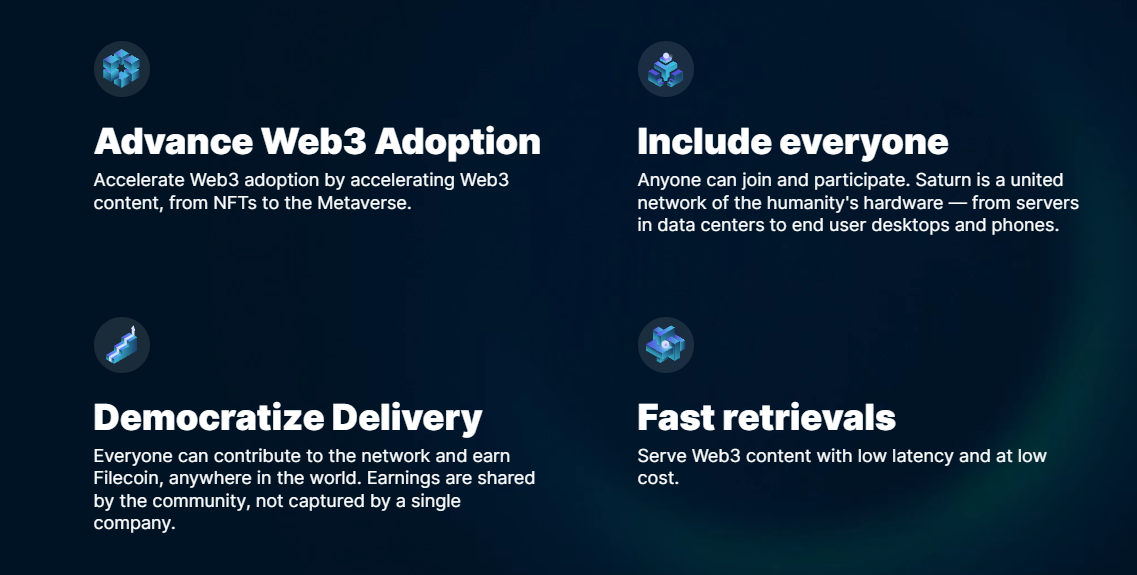Decentralizing Content Delivery Networks
 Keshav Sharma
Keshav Sharma
In today's technological landscape, we find ourselves in a distinct era where Content Delivery Networks (CDNs) play a role analogous to delivery partners for a food delivery company, ensuring the swift and efficient delivery of data to our web browsers. CDNs have revolutionized the way we serve data to users and offer robust defenses against potential attacks that a single server might be susceptible to. In this article, we will delve deep into the realm of CDNs, elucidating their purpose, and explore how Fleek and Saturn are endeavoring to decentralize this essential infrastructure. While there may be numerous such services, our focus will primarily be on these three to provide a comprehensive understanding of the evolving CDN ecosystem.
CDNs: What are they & Why do we need them?
A Content Delivery Network(CDN) is a geographically distributed network of proxy servers and their data centers. The purpose behind it is to provide high availability and performance of data to the users and prevent various attacks, the most famous among them being Distributed Denial-of-Service (DDoS).
Instead of hosting the data themselves, the content owners distribute it to the end users through CDN operators, creating a layer of high security, availability, and performance in the internet ecosystem. The process is to pay Internet Service Providers(ISPs) to host servers in their data centers. The number of nodes aka PoP(Point of Presence) hosted by these CDN operators is in thousands distributed geographically around the world.
Some of the most famous CDN operators are:
Cloudflare
Fastly CDN
AWS CloudFront
Key CDN
To summarize,
What: Geographically distributed network of servers.
Why: High security, availability, and performance.
Now, we know the what and why. Let's go to the HOW part.
How do they Work?
To begin with, content requests made by the end-user are typically directed to specific nodes through algorithms to achieve certain goals. When optimizing for performance, the aim is to select nodes that are best suited for delivering content to users. This can involve choosing nodes with the fewest network hops, the shortest network latency in terms of seconds, or the highest reliability in terms of server performance (both current and historical data). This optimization aims to improve content delivery within local networks.

Additionally, caching strategies play a crucial role in enhancing availability. Caching involves storing frequently requested content at strategic nodes, which reduces the need to fetch data from distant servers. This approach boosts availability by ensuring that frequently accessed content is readily available at the edge nodes, reducing response times.
On the other hand, when cost optimization is the priority, the emphasis shifts to selecting nodes that are the most budget-friendly. Ideally, these two objectives align, as edge servers located close to end users at the network's edge tend to offer advantages in both performance and cost efficiency.
Also, based on the different scenarios, there are different types of CDNs,
Peer-to-Peer CDN: end-user devices collaborate to distribute content efficiently. Increasing the number of peers enhances both availability and performance for newcomers joining the network. Example: uTorrent.
Push CDN: The content owner regularly uploads content to the CDN servers, facilitating more efficient access for end-users and distributing the load evenly across the central server.
Pull CDN: End-users upload the content to the CDN servers, simplifying the process for other end-users or the central server to retrieve the content. Example: Discord (stores all the media content on CDN shared in servers)
Let's shift our focus from the mechanics of content retrieval and explore how emerging services like Fleek and Saturn are revolutionizing the process. They aim to decentralize content delivery while elevating content availability, performance, and security to new heights.
Decentralized CDNs
The need for dCDN can only improve the problems the traditional CDN suffers due to its security. The main reasons could be:
Security: Distributed CDNs can enhance security by reducing the exposure of centralized servers to potential attacks and providing cryptographic techniques for secure data transfer.
Censorship Resistance: By dispersing content across a network of peers, decentralized CDNs can be more resilient to censorship attempts or restrictions on content availability.
Content Ownership and Control: Users can have more control over their content and data in decentralized CDNs, reducing reliance on third-party providers and mitigating data privacy concerns.
Node Provider Incentives: Decentralized CDNs often incorporate incentive mechanisms, such as token rewards or cryptocurrency payments, to encourage users to contribute their resources (nodes) to the network. This incentivization model can foster a robust and self-sustaining ecosystem of node providers, ensuring the availability and performance of the network while allowing users to earn rewards for their contributions.
Now, let's understand different services like Fleek and Saturn and how they contribute to the improvement of the content retrieval process.
FLEEK
Fleek is a decentralized edge infrastructure service that can help you build decentralized apps in a breeze. It provides SDK and services that you could use to integrate different protocols into your apps as well as helps you get a domain, and host them. In short, everything you need from developing to deploying your dapps.

Every website hosted and deployed on Fleek benefits from the Fleek Edge, which serves as Fleek's robust infrastructure backbone. This intelligent, geographically-aware, and decentralized system, soon to be enhanced by the Fleek Network, ensures accelerated and optimized content delivery. Notably, it offers high-availability caching and automatically refreshes the cache upon deployment, enhancing performance and reliability.
To know more about Fleek:
- A great X thread by Coding with Manny
Saturn
Saturn represents a groundbreaking venture in the world of Web3 CDNs, operating within Filecoin's dynamic retrieval market. On one end, applications can enjoy the advantages of swift and cost-effective content delivery, whereas, Saturn node operators are rewarded with Filecoin for fulfilling content requests.

Each piece of content on Saturn is securely anchored in the IPFS (InterPlanetary File System), ensuring immutability and providing verifiability for every response. This ecosystem thrives on crypto-incentives, harmonizing interests and fostering growth. Node operators earn Filecoin for expediting web content, and websites, in turn, benefit from expedited content delivery at reduced costs. All of Saturn's efforts are open-source, a testament to their commitment to global collaboration and progress that benefits all of humanity.
To know more about Saturn:
Conclusion
In conclusion, we've explored various aspects of content delivery networks and discussed their importance and significance in the Internet ecosystem. We highlighted the benefits of decentralized CDNs in solving scalability, redundancy, geographic coverage, latency, and other challenges. We also emphasized the role of incentive mechanisms in fostering a robust network of node providers (i.e. Saturn).
Additionally, we delved into specific platforms like Fleek and Saturn, showcasing their innovative approaches to content hosting, acceleration, and distribution within the Web3 ecosystem. These platforms prioritize performance, trustlessness, and inclusivity, ushering in a new era of content delivery and empowerment for users and operators alike.
Ultimately, the conversation underscores the transformative potential of decentralized CDNs in reshaping how we access and deliver digital content, fostering a more resilient, efficient, and open internet for all.
If you found this article informative and valuable, feel free to express your appreciation by liking it and sharing your thoughts in the comments section. Conversely, if you come across any inaccuracies or discrepancies in the information provided, please don't hesitate to report them to me, at @skeshav25. Your feedback is important in ensuring the accuracy and quality of the content.
Subscribe to my newsletter
Read articles from Keshav Sharma directly inside your inbox. Subscribe to the newsletter, and don't miss out.
Written by
